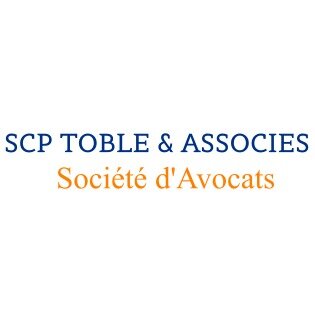Best Faith-Based Law Lawyers in Lomé
Share your needs with us, get contacted by law firms.
Free. Takes 2 min.
List of the best lawyers in Lomé, Togo
About Faith-Based Law in Lomé, Togo
Togo, a West African nation, is home to a diverse religious landscape that includes Christianity, Islam, and traditional African religions. In Lomé, the capital, faith-based law plays a significant role, especially within communities that observe religious doctrines in their daily lives. Faith-based law, often intertwined with customary laws, entails the legal principles and regulations derived from religious beliefs and texts. In Lomé, religious leaders and faith-based organizations often contribute to the application of these laws, which coexist with the secular judicial system. Understanding faith-based law in Lomé entails recognizing how religious beliefs influence family matters, civil responsibilities, and community norms.
Why You May Need a Lawyer
Individuals may seek legal advice in the realm of faith-based law for various reasons. Common situations include marriage and divorce proceedings, where religious guidelines might impact the legal process. Disputes over inheritance and property rights often arise within families adhering to religious tenets that dictate such matters. Additionally, individuals may need representation in cases where secular law and faith-based law intersect, such as employment disputes involving religious institutions or schools. It's essential to have knowledgeable legal counsel to navigate these complexities effectively, ensuring that one's rights are respected while upholding religious values.
Local Laws Overview
In Lomé, Togo, faith-based law is primarily governed by the Religious Bodies Registration Law, which influences how religious organizations operate. This legal framework allows for the establishment of religious courts dealing with personal and family disputes in accordance with specific religious doctrines. Customary law, influenced by both religious and traditional beliefs, also plays a significant role in resolving conflicts. However, Togo's secular legal system, based on the French civil law, takes precedence in major civil and criminal matters, though it often takes religious considerations into account under certain circumstances.
Frequently Asked Questions
What is the role of religious leaders in faith-based law?
Religious leaders often mediate conflicts and provide counsel in accordance with religious teachings. They may have authority in faith-based court systems, especially in personal and family law matters.
Do faith-based laws override civil laws in Togo?
While faith-based laws are respected, civil laws generally take precedence in governing the legal landscape in Togo. Faith-based laws are more influential in personal and family matters within religious communities.
Can I choose which legal system to use for my case?
In many personal matters, individuals may choose to adhere to faith-based resolutions. However, for legal recognition, civil laws and courts are generally required for the enforcement of legal rights and contracts.
Are faith-based marriages legally recognized in Togo?
Yes, faith-based marriages are recognized, but for the marriage to be legally binding under civil law, it must be registered with the appropriate governmental authority.
How does faith-based inheritance law work in Lomé?
Inheritance laws may vary according to religious beliefs. While faith-based principles guide family inheritances, leveraging both customary and religious laws, civil law provides legal frameworks for disputes resolution.
What legal assistance is available for resolving religious disputes?
Those involved in religious disputes can seek assistance from lawyers versed in both faith-based and secular laws to ensure a balanced resolution process respectful of both spheres.
Is legal advice necessary for interfaith family cases?
Yes, as interfaith family matters often involve complexities of multiple religious laws, legal advice is essential to navigate both religious and secular implications effectively.
What are the rights of employees at religious institutions?
Employees in religious institutions have rights protected under labor laws, although these must be balanced with respect to the religious principles governing the institution.
Can faith-based law influence educational institutions?
Yes, faith-based law can influence policies and curricula within religious educational institutions, although educational standards must comply with national laws.
Where can I find a lawyer knowledgeable in faith-based law?
Lawyers specializing in faith-based law can often be found through religious communities or professional law associations focused on religious and customary law.
Additional Resources
Consider reaching out to the following resources for further assistance: - Togo's Ministry of Justice for legal guidelines and frameworks. - Local religious councils or communities, which often facilitate conflict resolution and provide guidance. - Professional law associations that specialize in customary and religious laws. - Non-governmental organizations offering mediation in conflicts involving faith-based law.
Next Steps
If you require legal assistance in the field of faith-based law in Lomé, Togo, it is advisable to consult with a lawyer who specializes in this area. Begin by contacting local legal associations or religious organizations for referrals. Make sure your lawyer is proficient in both international legal standards and local religious guidelines to provide comprehensive advice tailored to your case. Furthermore, consider engaging in mediation or arbitration within your religious community as a preliminary step before pursuing formal legal action.
Lawzana helps you find the best lawyers and law firms in Lomé through a curated and pre-screened list of qualified legal professionals. Our platform offers rankings and detailed profiles of attorneys and law firms, allowing you to compare based on practice areas, including Faith-Based Law, experience, and client feedback.
Each profile includes a description of the firm's areas of practice, client reviews, team members and partners, year of establishment, spoken languages, office locations, contact information, social media presence, and any published articles or resources. Most firms on our platform speak English and are experienced in both local and international legal matters.
Get a quote from top-rated law firms in Lomé, Togo — quickly, securely, and without unnecessary hassle.
Disclaimer:
The information provided on this page is for general informational purposes only and does not constitute legal advice. While we strive to ensure the accuracy and relevance of the content, legal information may change over time, and interpretations of the law can vary. You should always consult with a qualified legal professional for advice specific to your situation.
We disclaim all liability for actions taken or not taken based on the content of this page. If you believe any information is incorrect or outdated, please contact us, and we will review and update it where appropriate.










